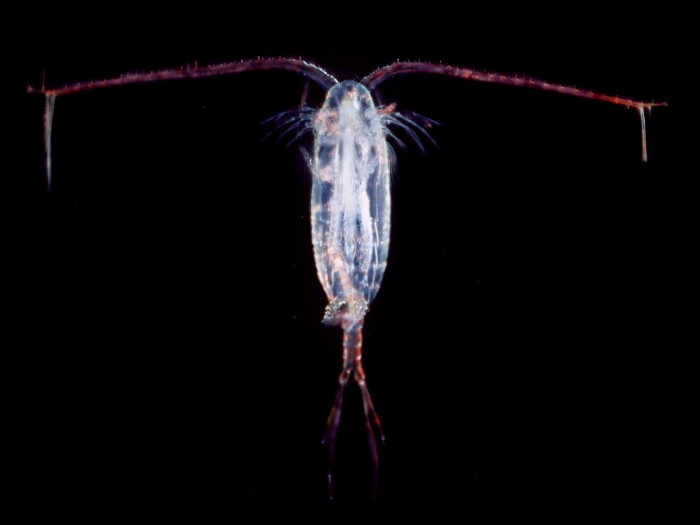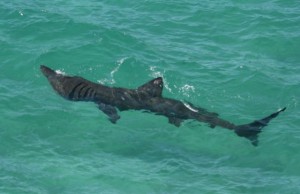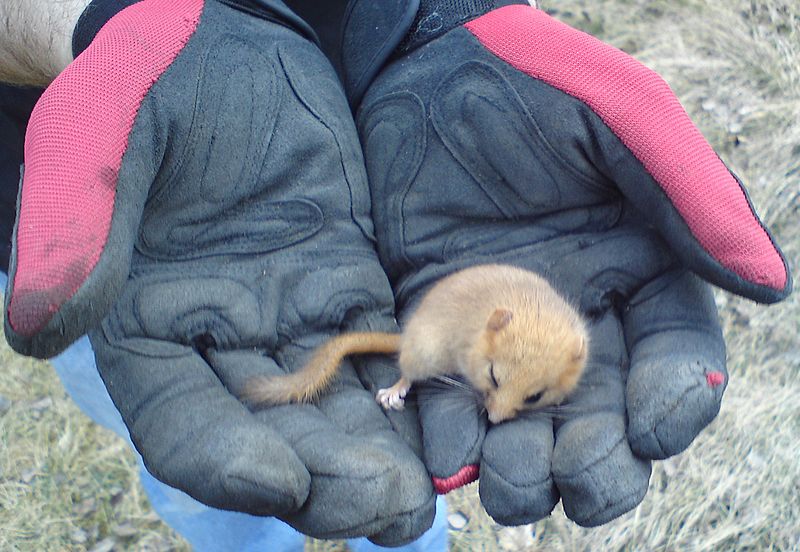UK Conservation – Are We Really Seeing the Bigger Picture?
I could put this point forward to big businesses and funding councils but the fact of the matter is that there just isn’t enough public support.
 Image: Kils at the English language Wikipedia [GFDL (www.gnu.org/copyleft/fdl.html), CC-BY-SA-3.0 (http://creativecommons.org/licenses/by-sa/3.0/) or GFDL (www.gnu.org/copyleft/fdl.html)], from Wikimedia Commons
Image: Kils at the English language Wikipedia [GFDL (www.gnu.org/copyleft/fdl.html), CC-BY-SA-3.0 (http://creativecommons.org/licenses/by-sa/3.0/) or GFDL (www.gnu.org/copyleft/fdl.html)], from Wikimedia Commons
Recently, someone asked me why I had decided to pursue a career in conservation. Truth be told, I haven’t.
For marine biologists, most major conservation efforts usually concentrate on species such as marine mammals, pretty birds and other ‘aesthetically pleasing’ fauna. If not these, then the focus tends to be on issues such as over fishing and bycatch. So what is someone like me to do, when my favourite animals are copepods and jellyfish?
There are no multi-million pound efforts to save as many of them as possible. My family don’t even know what a copepod is, let alone it’s vital position in the oceanic environment. For many, a jellyfish is just something that makes our beaches ugly when it washes up and stings you into subjecting yourself to the ordeal of having someone urinate on you (which incidentally, doesn’t work!).
Some may feel there shouldn’t be an effort to save these creatures (I suppose that is subject to personal opinion) but if they live in the same – heavily polluted and depleting – environment as the pretty fish and cute turtles, surely they are entitled to an equal shot at survival? I could put this point forward to big businesses and funding councils but the fact of the matter is that there just isn’t enough public support. Who would help an animal you got stung by last summer; and as a result of which had to have someone urinate on you.
So should I just not try? and simply just give up on these creatures? Well the heroic answer would be “No, of course not!”, but I think mine is “Yes, what am I supposed to do?” I don’t own a multimillion-pound business; I’m a student with barely a penny to my name. How could I raise awareness? Well, I suppose this blog is a small step towards that.
Until public awareness is increased, I’m stuck in a lab looking at copepod tolerance levels and what chemicals are released when jellyfish sting. And they? They are out being caught by fishermen and thrown back in the sea or living in a polluted environment where plastic is passed through the food chain as effectively as heavy metals.
What I’m trying to say is that there is no point trying to save the charismatic species if the keystone species in the habitat are dying out. What’s the point of trying to save the whales if the plankton resources (a main food source) are depleting. Conservation is too selective to be totally efficient. I’m not saying don’t do it, the work is brilliant and has saved many species from extinction.
Just maybe…
…try to look at the bigger picture.
If you’d like to share your views and thoughts on the subject, please feel free to leave your comments below – this topic is open for debate and analysis.
Thank you for your participation in advance.





3 Comments
Couldn’t agree more, it’s the entire marine environment that needs be properly managed and protected – not just the iconic species in it. I think there is a slow awareness of this growing among the public but it is, admittedly, low on the average person’s priority list.
It’s unfortunate that the same holds true when it comes to government and willingness to act. It’s not that there’s a shortage of bodies willing to provide assistance and expertise either; it’s a lack of political will, shortsighted policies and out of sight – out of mind thinking.
It’s a slow and frustrating process with often little real progress but there are various organisations who make admirable (and valuable) efforts that deserve government and public support such as MCS and others.
Organisations like the RSPB also are not just about campaigning on behalf of birds for the sake of birds, they (on land and at sea) recognise the importance of habitat and work towards its conservation.
Moving up the chain, you have various organisations which work towards sustainable activities such as fisheries. This is probably the most patchy area from my understanding of the issues but the principle is sound if the right decisions and approaches are taken.
There are also government advisory groups and departments responsible for various aspects of marine policy.
What we really need is more joined up thinking and coordination and a mandate from government at the local, national and EU levels as well as undertakings Internationally to address issues.
Sounds simple, but why hasn’t it worked so far? As usual, it’s conflict of interests. Lobbying power and self-interest at the expense of an environmentally sound approach to our activities results in laughably ineffectual agreements which often fail to be implemented or the entirely wrong policy strictly policed to even greater wider detriment.
So why bother? Quite simply because we have to. The seemingly infinite has become finite. The primary avenue of change is raising awareness among the public and gaining their support by education and reconnecting people with their environment. Behind that, there needs to be good strong science to demonstrate the issues and solutions. The more organisations can work together and present the arguments as one, the better.
It’s an uphill battle and the changes needed to merely slow the inevitable won’t necessarily be given until it’s too late if things continue as they have until now. However, if we sit back and wait it’s a foregone conclusion.
*Please forgive my vague generalities, I don’t want to get bogged down in specific examples. I’m just trying to convey my impression of the overall picture from the standpoint of a well-meaning amateur. If you made it this far, thanks for reading. 😉
Basically Brian, you have just summed up my next blog 🙂
As this was my first post, I tried to be as general as possible with the opportunity to focus on marine conservation efforts in the next few additions. Thanks for the insight, I shall be using a lot of these examples in the future.
Look out for my next post on the problems of the EU fisheries policy 🙂
Amy
Hi Brian, thank you so much for your contribution. It certainly is a rather insightful perspective. Are you actively involved in any campaigns or projects at the moment and would you be interested in writing a post about your perspectives, highlighting the examples you have mentioned not mentioning above ? 😉